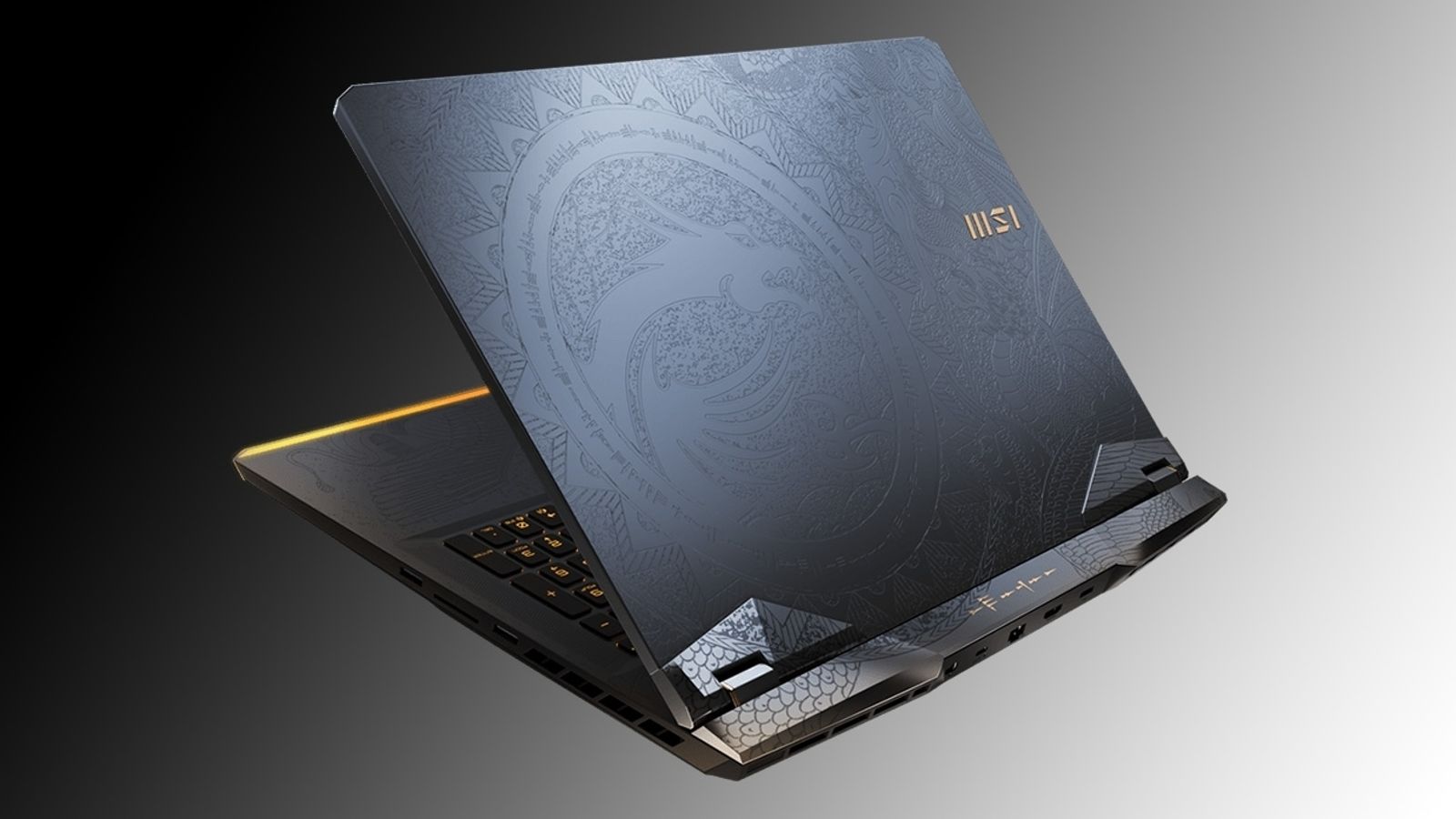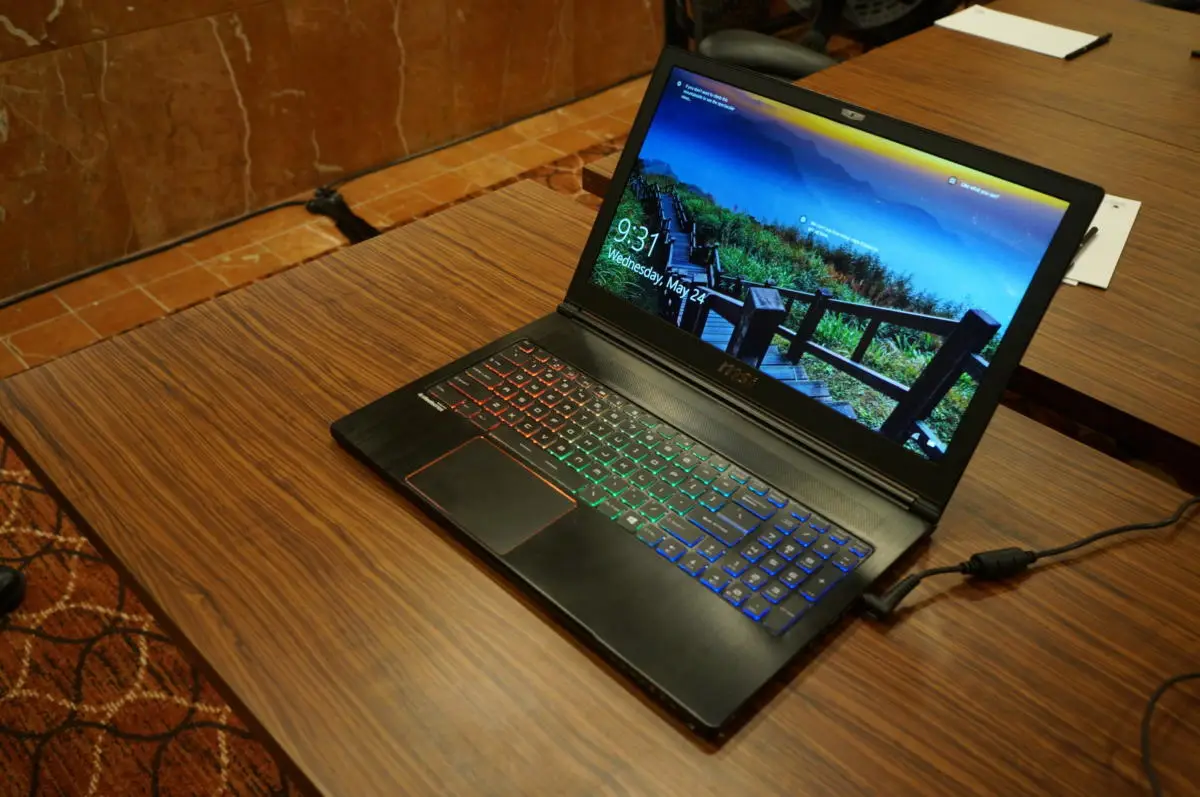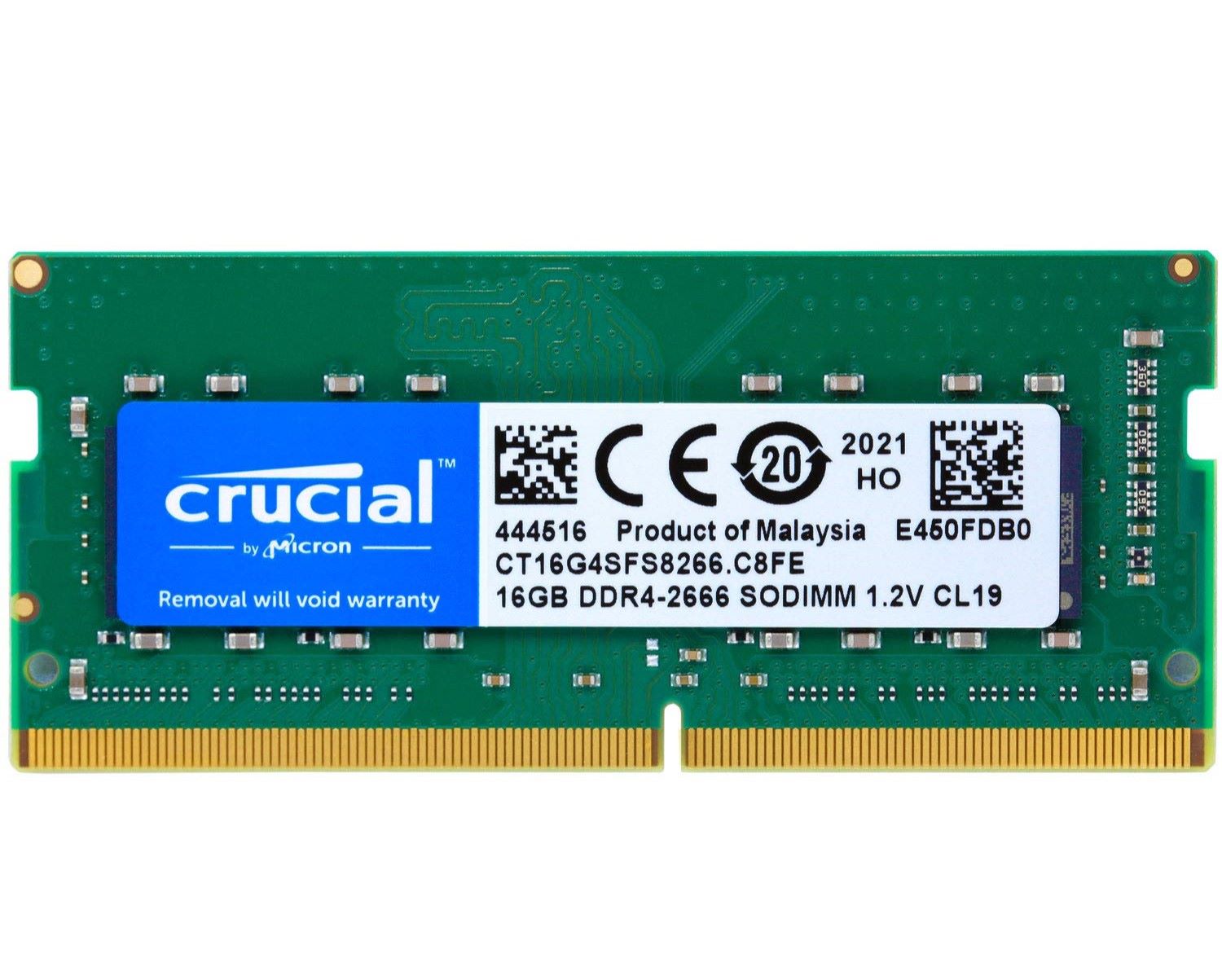Introduction
Welcome to the world of gaming laptops, where power, performance, and portability come together to provide a superior gaming experience. With the rapid advancements in technology, gaming laptops have become the go-to choice for gamers who want to enjoy their favorite games on the go. These powerful machines offer the perfect balance of mobility and functionality, allowing gamers to dive into immersive worlds wherever they are.
When it comes to choosing the best gaming laptop computer, there are several key factors to consider. From the processor and graphics card to the display, storage, and battery life, each component plays a crucial role in determining the performance and overall gaming experience. Additionally, factors like cooling systems and price can also influence the decision-making process.
In this comprehensive guide, we will dive into the essential aspects that make a gaming laptop stand out from the crowd. Whether you’re an avid gamer or a casual player, understanding these factors will help you make an informed decision and find the perfect gaming laptop that meets your specific needs and budget.
So, let’s get started and explore the world of gaming laptops, where power meets portability, and gaming never stops.
Processor
The processor is the brain of a gaming laptop and plays a critical role in determining its performance. It handles all the calculations, ensuring smooth gameplay and faster processing of tasks. When it comes to gaming, a powerful processor is essential for handling the demanding graphics and physics involved in modern games.
One of the top processors in the gaming laptop market is the Intel Core i7 or i9 series. These processors offer high clock speeds and multiple cores, allowing for seamless multitasking and efficient gaming performance. AMD’s Ryzen processors are also gaining popularity for their impressive performance and value for money.
For a smoother gaming experience, it is recommended to choose a laptop with at least a quad-core processor. This ensures that the laptop can handle the graphics-intensive demands of modern games. Additionally, it’s important to consider the generation of the processor, opting for the latest generation for improved performance and energy efficiency.
The processor’s cache size is another factor to consider. A larger cache size allows for faster data retrieval, resulting in smoother gameplay. Look for laptops with at least 6MB or more of cache memory for optimal performance.
Lastly, don’t forget to consider the processor’s cooling capabilities. Gaming laptops tend to get hot during extended gaming sessions, so having a robust cooling system is crucial. Look for laptops with efficient cooling mechanisms such as multiple fans and heat pipes to prevent overheating and maintain optimal performance.
In summary, the processor is a crucial component when it comes to gaming laptops. Aim for a laptop with an Intel Core i7 or i9 processor, or an AMD Ryzen processor, for optimal gaming performance. Consider the processor’s generation, cache size, and cooling capabilities to ensure smooth and efficient gameplay.
Graphics Card
The graphics card is one of the most important components of a gaming laptop as it directly impacts the visual experience and gaming performance. A powerful graphics card ensures smooth rendering of high-quality graphics, realistic textures, and fluid animation in games.
When it comes to gaming, NVIDIA and AMD are the leading manufacturers of graphics cards. NVIDIA GeForce RTX series and AMD Radeon RX series are widely known for their exceptional performance in gaming laptops. Look for a laptop that features at least a GTX 1660 Ti or RTX 2060 from NVIDIA or an RX 5600M from AMD for a satisfactory gaming experience.
The VRAM (Video Random Access Memory) capacity of the graphics card is also crucial. A higher VRAM allows for smoother gameplay at higher resolutions and better handling of graphics-intensive tasks. Aim for a laptop with at least 6GB of dedicated VRAM to ensure optimal gaming performance.
Additionally, consider the clock speed and CUDA/Core count of the graphics card. Higher clock speeds and more CUDA or Core count translate to better gaming performance, especially in graphically demanding games.
Another important consideration is ray tracing technology. NVIDIA’s RTX series graphics cards offer real-time ray tracing capabilities, enhancing the visual realism of games. If you want to experience stunning lighting and reflections, look for a laptop with an RTX series graphics card.
Lastly, don’t forget about thermal management. Graphics cards can generate a significant amount of heat during intensive gaming sessions. Opt for a laptop with effective cooling mechanisms, such as multiple fans and vents, to prevent overheating and ensure consistent performance.
In summary, a powerful graphics card is crucial for a superior gaming experience on a laptop. Look for a laptop with at least a GTX 1660 Ti or RTX 2060 from NVIDIA or an RX 5600M from AMD. Consider VRAM capacity, clock speed, and CUDA/Core count for optimal performance. Ray tracing technology can enhance visual realism, and robust thermal management is essential for maintaining consistent performance.
Display
The display of a gaming laptop is a crucial component that directly impacts the visual experience and immersion while gaming. A high-quality display with vibrant colors, fast response times, and adequate refresh rates can enhance the overall gameplay experience.
When it comes to the display size, it is a matter of personal preference and mobility. Smaller displays, around 15 inches, offer better portability, while larger displays, around 17 inches, provide a more immersive gaming experience. Choose a display size that suits your gaming needs and lifestyle.
Resolution is another important aspect to consider. Higher resolutions, such as 1080p (Full HD) or 1440p (Quad HD), offer sharper and more detailed visuals, making the gaming experience more enjoyable. However, keep in mind that higher resolutions require more powerful hardware to run games smoothly. Consider your laptop’s graphics card capabilities before opting for higher resolutions.
Refresh rate is a crucial factor for smooth gameplay. The refresh rate refers to how many times per second the display refreshes its image. Higher refresh rates, such as 144Hz or 240Hz, result in smoother motion and reduce input lag. This is especially important for fast-paced games where quick reactions are necessary.
Color accuracy is important for a more vibrant and realistic visual experience. Look for laptops with displays that cover a wide color gamut, such as 100% sRGB or Adobe RGB, for more accurate and vivid colors. This is particularly important if you want to do creative work or enjoy visually stunning games.
Lastly, consider the panel type of the display. IPS (In-Plane Switching) panels offer wider viewing angles and better color reproduction, making them ideal for gaming and multimedia purposes. TN (Twisted Nematic) panels provide faster response times but sacrifice some viewing angle and color accuracy. Choose a panel type based on your preference for color accuracy or fast response times.
In summary, a high-quality display is essential for an immersive gaming experience on a laptop. Consider the display size, resolution, refresh rate, color accuracy, and panel type when choosing a gaming laptop for optimal visuals and gameplay.
Storage
Storage plays a crucial role in a gaming laptop, as it determines how fast your games load and how much data you can store. There are two primary types of storage options available in gaming laptops: Solid State Drives (SSD) and Hard Disk Drives (HDD).
SSDs are the preferred choice for gaming laptops due to their faster read and write speeds. They offer quicker game load times, faster boot-up times, and overall snappier system performance. Look for laptops with PCIe NVMe SSDs for the best performance, as they offer faster data transfer speeds compared to SATA SSDs.
HDDs, on the other hand, provide larger storage capacities at a more affordable price point. If you need to store a large number of games or multimedia files, opting for a laptop with a secondary HDD can be beneficial. However, keep in mind that HDDs are slower compared to SSDs when it comes to data access speeds.
For optimal storage capacity and performance, look for gaming laptops that offer a combination of SSD and HDD. This way, you can store your frequently played games on the SSD for faster load times, while using the HDD for additional storage.
It’s also worth considering the storage capacity you’ll need for your gaming needs. Games today can take up a significant amount of space, with some AAA titles requiring 50GB or more. Opt for a laptop with at least 512GB of storage or higher if you plan on installing multiple games and storing other multimedia files.
In summary, storage is an important consideration for gaming laptops. Opt for laptops with SSDs for faster load times and snappier performance. Consider a combination of SSD and HDD for optimal storage capacity. Aim for a minimum of 512GB of storage or higher to accommodate your games and multimedia files efficiently.
RAM
Random Access Memory, or RAM, is an essential component that affects the overall performance and multitasking capabilities of a gaming laptop. RAM is responsible for temporarily storing data that the CPU needs to access quickly, allowing for smoother and more efficient gameplay.
When it comes to gaming laptops, it is recommended to have a minimum of 8GB of RAM. This amount of memory is sufficient for most modern games and general multitasking. However, for a more future-proof setup and better performance in demanding games, consider opting for 16GB or even 32GB of RAM.
Having more RAM allows the laptop to handle multiple tasks simultaneously without experiencing slowdowns or stutters. This can be useful when running background applications, streaming, or using resource-intensive software alongside your games.
Another important factor to consider is the RAM speed, measured in megahertz (MHz). Higher RAM speeds result in faster data transfer rates, improving overall system performance. Aim for gaming laptops with RAM speeds of 2666MHz or higher for optimal gaming performance.
It’s worth noting that RAM is upgradable on many gaming laptops. If your budget doesn’t allow for higher RAM configurations at the time of purchase, you can consider upgrading the RAM in the future as your needs and budget allow.
In summary, RAM is an important component in a gaming laptop that affects multitasking capabilities and overall performance. Aim for a minimum of 8GB of RAM, but consider higher amounts like 16GB or 32GB for better future-proofing and performance. Higher RAM speeds also contribute to improved system performance.
Battery Life
Battery life is a crucial aspect to consider when choosing a gaming laptop, especially if you plan to use it for gaming on the go or in situations where a power outlet may not be readily available. A longer battery life ensures that you can enjoy your gaming sessions without interruptions or the need to constantly search for a power source.
Gaming laptops tend to consume more power due to their high-performance components and intensive graphics processing. As a result, they typically have shorter battery lives compared to regular laptops. However, advancements in technology have allowed some gaming laptops to offer improved battery efficiency.
When considering battery life, it’s important to understand that the actual duration can vary based on the laptop’s specifications, usage, and power settings. Manufacturers often provide estimated battery life, but it’s wise to consider real-world reviews and user experiences for a better understanding.
It’s recommended to look for gaming laptops that offer at least 4 to 6 hours of battery life under normal usage conditions. This would allow for moderate gaming or multimedia consumption without needing to plug in for several hours. However, keep in mind that more demanding games or intense resource usage will drain the battery faster.
It’s also worth noting that some gaming laptops come with features like hybrid graphics switching or power-saving modes to extend battery life. These features can help optimize power consumption by using integrated graphics for lighter tasks and switching to dedicated graphics only when necessary.
Lastly, keep in mind that brighter display settings, keyboard backlighting, and other power-hungry features can significantly impact battery life. Adjusting these settings or using power-saving modes can help prolong the battery life during gaming sessions.
In summary, consider the estimated battery life of a gaming laptop and aim for at least 4 to 6 hours of battery life under normal usage conditions. Understand that more demanding games or resource-intensive tasks will drain the battery faster. Look for laptops with power-saving features or hybrid graphics switching to extend battery life.
Cooling System
A robust cooling system is crucial for a gaming laptop to ensure optimal performance and prevent overheating during intensive gaming sessions. As gaming laptops generate a significant amount of heat, a well-designed cooling system is essential to maintain system stability and extend the lifespan of the components.
Gaming laptops typically employ various cooling mechanisms to dissipate heat effectively. One common feature is the presence of multiple cooling fans. These fans help circulate air and remove heat from the components, such as the CPU and GPU. Laptops with multiple fans tend to have better heat dissipation capabilities.
Heat pipes are another important component of a gaming laptop’s cooling system. These copper tubes are filled with heat-conducting fluid and are responsible for transferring heat away from hot spots to the cooling fans. Look for laptops with heat pipes that cover both the CPU and GPU to ensure efficient heat dissipation.
Some gaming laptops also utilize vapor chambers, which are advanced cooling solutions that offer improved heat transfer efficiency. Vapor chambers are flat, sealed chambers that contain a small amount of liquid. When the components heat up, the liquid evaporates, absorbing heat and carrying it away from the heat source.
Additional factors to consider include the placement and size of vents and exhausts. Look for laptops that have strategically placed vents to allow for proper airflow and heat dissipation. Larger vents and exhausts can help in expelling hot air more efficiently, keeping the laptop cool during intense gaming sessions.
Proper maintenance and cleaning of the cooling system are also important. Over time, dust and debris can accumulate in the cooling fans and vents, reducing airflow and causing overheating. Regularly cleaning the vents and fans helps ensure optimal performance and prevents thermal issues.
In summary, a reliable cooling system is crucial for a gaming laptop to prevent overheating and maintain optimal performance. Look for laptops with multiple cooling fans, heat pipes, and vapor chambers. Consider the placement and size of vents and exhausts for proper airflow. Regular maintenance and cleaning of the cooling system are also important to prevent thermal issues.
Price
Price is an important consideration when choosing a gaming laptop as it ultimately determines what specifications and features you can afford. Gaming laptops come in various price ranges, and finding the right balance between performance and budget is crucial.
When determining your budget, it’s essential to consider your gaming needs and priorities. If you’re a casual gamer who plays less demanding games, a mid-range gaming laptop might suffice. These laptops offer a good balance of performance and affordability, allowing you to enjoy a smooth gaming experience without breaking the bank.
On the other hand, if you’re a hardcore gamer or content creator who requires high-end performance, you may need to invest in a high-end gaming laptop. These laptops often feature top-of-the-line processors, powerful graphics cards, ample RAM, and fast storage options. However, they can come with a higher price tag.
It’s important to research and compare different gaming laptops within your budget range. Pay attention to the specifications, performance benchmarks, and reviews to ensure you get the best value for your money. Don’t forget to consider factors like customer support, warranty, and after-sales service when making your purchasing decision.
It’s worth noting that gaming laptop prices can fluctuate over time due to changes in technology and market demand. Keeping an eye on sales, promotions, and discounts can potentially help you find a gaming laptop within your desired price range while still meeting your requirements.
Lastly, consider whether you want to invest in additional accessories or peripherals, such as gaming mice, headsets, or external monitors. These can add to the overall cost but can enhance your gaming experience and provide more flexibility in your setup.
In summary, determining your budget and finding the right balance between performance and price is crucial when choosing a gaming laptop. Consider your gaming needs and priorities, research and compare different options, and keep an eye on sales and promotions. Don’t forget to factor in additional accessories or peripherals that may be needed for an optimal gaming experience.
Conclusion
Choosing the best gaming laptop computer requires careful consideration of several key factors. From the processor and graphics card to the display, storage, RAM, battery life, cooling system, and price, each aspect plays a crucial role in determining the overall gaming experience.
For optimal performance, opt for a gaming laptop with a powerful processor, such as an Intel Core i7 or i9, or an AMD Ryzen processor. Pair it with a high-performance graphics card like the NVIDIA GeForce RTX series or AMD Radeon RX series for stunning visuals and smooth gameplay. Consider the VRAM capacity, clock speed, and cooling capabilities of the graphics card for the best gaming experience.
The display of the gaming laptop is essential for an immersive experience. Look for high-resolution screens, fast refresh rates, wide color gamut, and IPS panels for vibrant visuals and realistic gaming experiences.
Storage is crucial for storing games and multimedia files. Opt for laptops with SSDs for faster load times, and consider a combination of SSD and HDD for optimal storage capacity. Aim for at least 8GB of RAM, higher if possible, to ensure smooth multitasking and gaming performance.
Battery life is a consideration to keep in mind, especially for gaming on the go. Look for laptops with good battery life, power-saving features, and hybrid graphics switching for extended usability.
A robust cooling system is vital for preventing overheating and ensuring optimal performance. Consider laptops with multiple cooling fans, heat pipes, and vapor chambers to keep the temperatures in check.
Finally, price plays a significant role in decision-making. Determine your budget and strike the right balance between performance and affordability. Research and compare different options within your budget range to find the best value.
By considering these factors and finding the best combination that suits your gaming needs, you can select a gaming laptop that offers exceptional performance, immersive visuals, and a smooth gaming experience. So dive into the world of gaming, equip yourself with the perfect gaming laptop, and get ready for countless hours of thrilling gameplay.

























